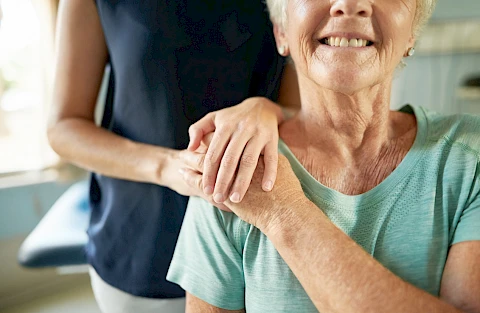
Caring for seniors with chronic pain is both a challenging and rewarding responsibility. Chronic pain, which persists for longer than three months, is a common issue among the elderly. It can be due to various factors like arthritis, nerve damage, or chronic illnesses. As a caregiver, your role is pivotal in helping seniors manage their pain effectively, which can greatly improve their quality of life.
Comprehending Chronic Pain in Seniors
Chronic pain in seniors often arises from conditions such as osteoarthritis, neuropathy, or previous injuries. It can affect all aspects of life, making daily activities difficult and impacting emotional well-being. Seniors experiencing chronic pain may feel isolated or frustrated. Understanding the types and causes of pain is the first step in providing support.
Pain Management Techniques
Managing chronic pain often involves a combination of strategies. Medication is commonly used but should be carefully monitored due to potential side effects and interactions. Prescription pain relievers are useful for managing intense pain but require regular assessment by a healthcare professional. Over-the-counter pain medications can be effective for mild to moderate pain, but should still be used cautiously.
Non-pharmacological approaches are gaining popularity due to their holistic benefits. Physical therapy helps improve strength and flexibility, which can alleviate pain. Acupuncture is an alternative therapy that can provide relief for various kinds of pain. A personalized pain management plan, developed with healthcare providers, ensures that specific needs are met effectively.
When to Seek Medical Help
Don't let your pain rule your life. If pain becomes intense, spreads, or is accompanied by other symptoms, medical intervention is required. Regular check-ups with healthcare providers allow for ongoing assessment and adjustment of pain management strategies.
Adapting Daily Activities
Modifying daily activities can significantly reduce pain levels in seniors. Small changes can make a big difference:
- Simplify Tasks: Break up activities into smaller steps to avoid overexertion.
- Make Home Adjustments: Arrange furniture to prevent accidents. Use ergonomic chairs and supportive cushions.
- Use Assistive Devices: Canes, walkers, and grab bars can aid mobility and reduce strain.
With these tips in mind, you'll be better able to manage your day-to-day activities.
Maintaining Physical Activity
Keeping active is beneficial for managing chronic pain and maintaining overall health. Exercise releases endorphins, which are natural pain relievers. Seniors should engage in safe exercises like walking, which is gentle on the joints and promotes cardiovascular health, and swimming, which reduces pressure on the body and improves flexibility. Encourage regular physical activity to help seniors manage pain and improve their mood. Just be sure their doctor approves the plan.
Fostering Social Connections
Social interaction is helpful for mental and emotional health, particularly for those living with chronic pain. Encourage seniors to stay connected through various means. Community activities at senior centers offer programs that provide social engagement. Virtual connections through video calls and online groups allow interaction without physical exertion. Strong social connections can alleviate feelings of isolation and contribute to better overall health.
Manage Pain With the Assistance of Senior Helpers Fort Wayne
Managing chronic pain in seniors requires a multi-faceted approach that combines understanding, personalized care, and adaptive strategies. As caregivers, your support can make a significant difference. Emphasize the importance of consultations with healthcare providers, encourage personal and social activities, and adapt routines to be pain-conscious.
If you need help, Senior Helpers Fort Wayne offers professional caregiving services in Leo, Laotto, Huntertown, Arcola, Auburn, and nearby. Contact us for resources and support in providing the best care for your loved ones.